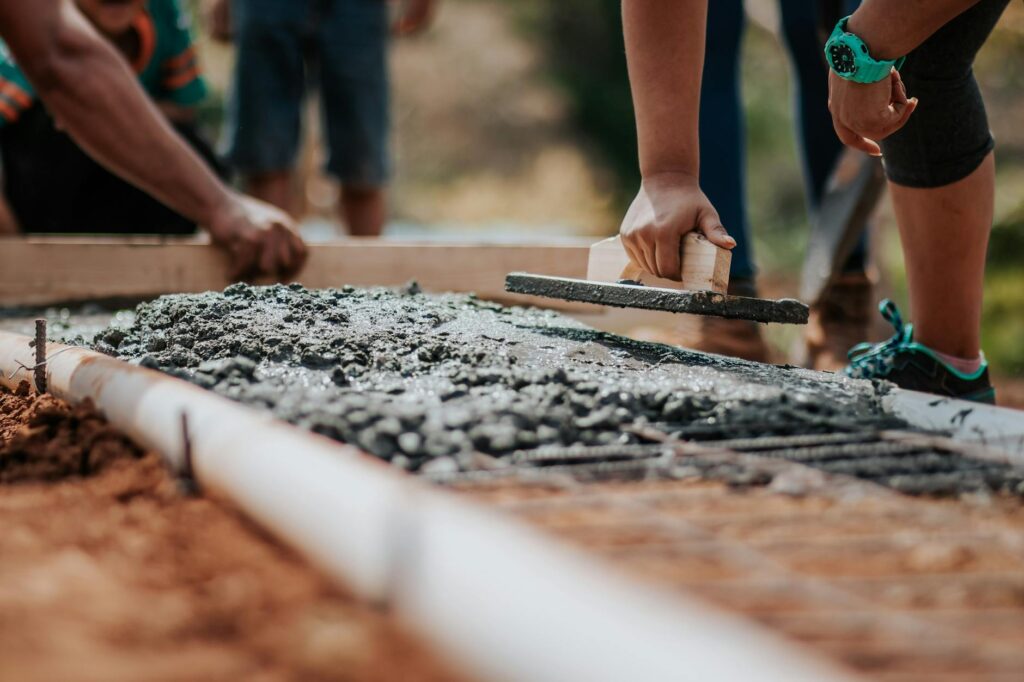Insulated concrete forms (ICFs) are revolutionizing the way homes are built, offering a compelling blend of energy efficiency, durability, and comfort. Let’s delve into the world of ICFs and discover why they’re becoming a popular choice for modern construction.
What are Insulated Concrete Forms?
ICFs are large blocks made from expanded polystyrene (EPS) or extruded polystyrene (XPS) foam, which are connected to create a hollow core. Reinforcing steel bars are then placed within the core, and the forms are filled with concrete. This process results in a highly insulated, structurally sound wall system. 
Energy Efficiency and Cost Savings
One of the most significant advantages of ICFs is their exceptional thermal performance. The thick foam insulation significantly reduces heat transfer, leading to lower energy bills and a smaller carbon footprint. While the initial cost might be slightly higher than traditional methods, the long-term savings on heating and cooling more than compensate. Learn more about long-term energy savings.
Superior Durability and Strength
ICF homes are remarkably durable and resistant to damage from extreme weather, including high winds, earthquakes, and even fire. The concrete core provides exceptional structural integrity, while the foam insulation acts as a buffer against impact. This leads to a home that is built to last. [IMAGE_2_HERE]
Improved Indoor Air Quality
The airtight nature of ICF construction helps to minimize drafts and air infiltration, leading to improved indoor air quality. This is particularly beneficial for people with allergies or respiratory sensitivities. A tighter building envelope also reduces the strain on your HVAC system. Discover more about improving indoor air quality.
Faster Construction Times
While the process of building with ICFs might seem more complex, it can actually lead to faster construction times. The forms themselves are easy to assemble, and the concrete cures relatively quickly. The reduced need for on-site labor can also speed up the project. [IMAGE_3_HERE]
Soundproofing Benefits
The mass of concrete and the insulating properties of the foam work together to provide excellent sound dampening capabilities. ICF homes are quieter and more peaceful than those built using traditional framing methods. This feature is especially valuable in noisy neighborhoods or for families who appreciate a tranquil home environment.
Sustainability and Environmental Impact
ICFs contribute to sustainable building practices by reducing energy consumption and waste. The foam insulation is often made from recycled materials, and the concrete itself is a durable, long-lasting building material. Choosing ICF construction is a step towards a greener future. Learn more about ICF sustainability.
Pest and Mold Resistance
The dense concrete core and closed-cell foam insulation create a barrier against pests and mold growth. This helps to protect the structure of your home and maintain a healthy living environment. Explore Energy Star’s recommendations for home insulation.
Conclusion
Insulated concrete forms offer a compelling solution for those seeking a high-performance, energy-efficient, and durable home. While the initial investment may be higher, the long-term benefits, including reduced energy costs, increased comfort, and superior structural integrity, make ICF construction a worthwhile consideration. [IMAGE_4_HERE]
Frequently Asked Questions
What is the lifespan of an ICF home? ICF homes are known for their exceptional longevity, often outlasting traditionally framed homes.
Are ICF homes more expensive to build? While the initial cost might be higher, long-term savings on energy make them a cost-effective solution. See our section on energy savings.
How fire-resistant are ICF homes? ICFs offer superior fire resistance compared to traditional wood-framed homes. Read more about fire resistance in ICF construction.
Are ICF homes environmentally friendly? Yes, ICF construction contributes to sustainable building by reducing energy consumption and waste.
How much maintenance do ICF homes need? ICF homes typically require less maintenance than traditional homes because of their durability and resistance to pests and mold.

